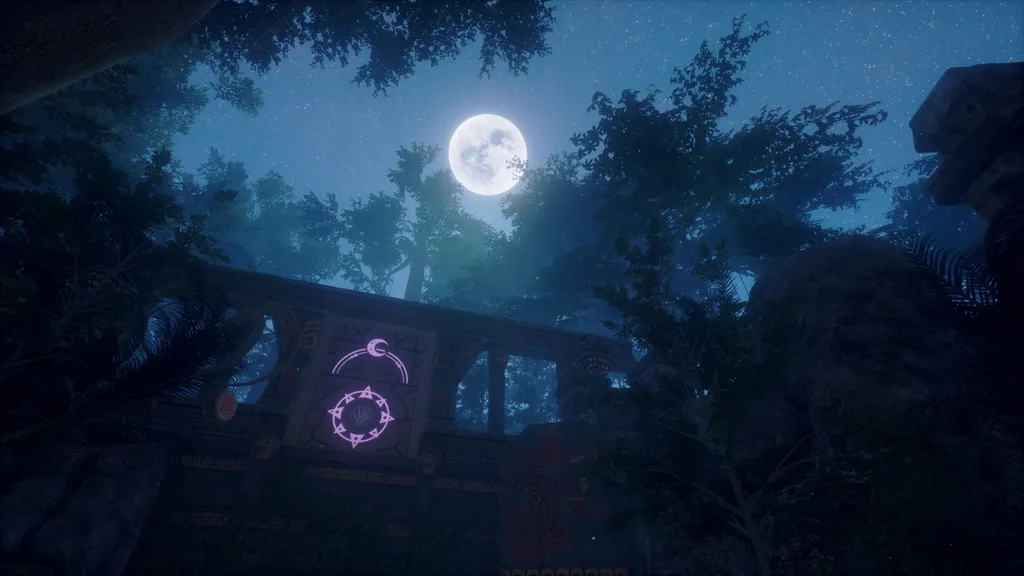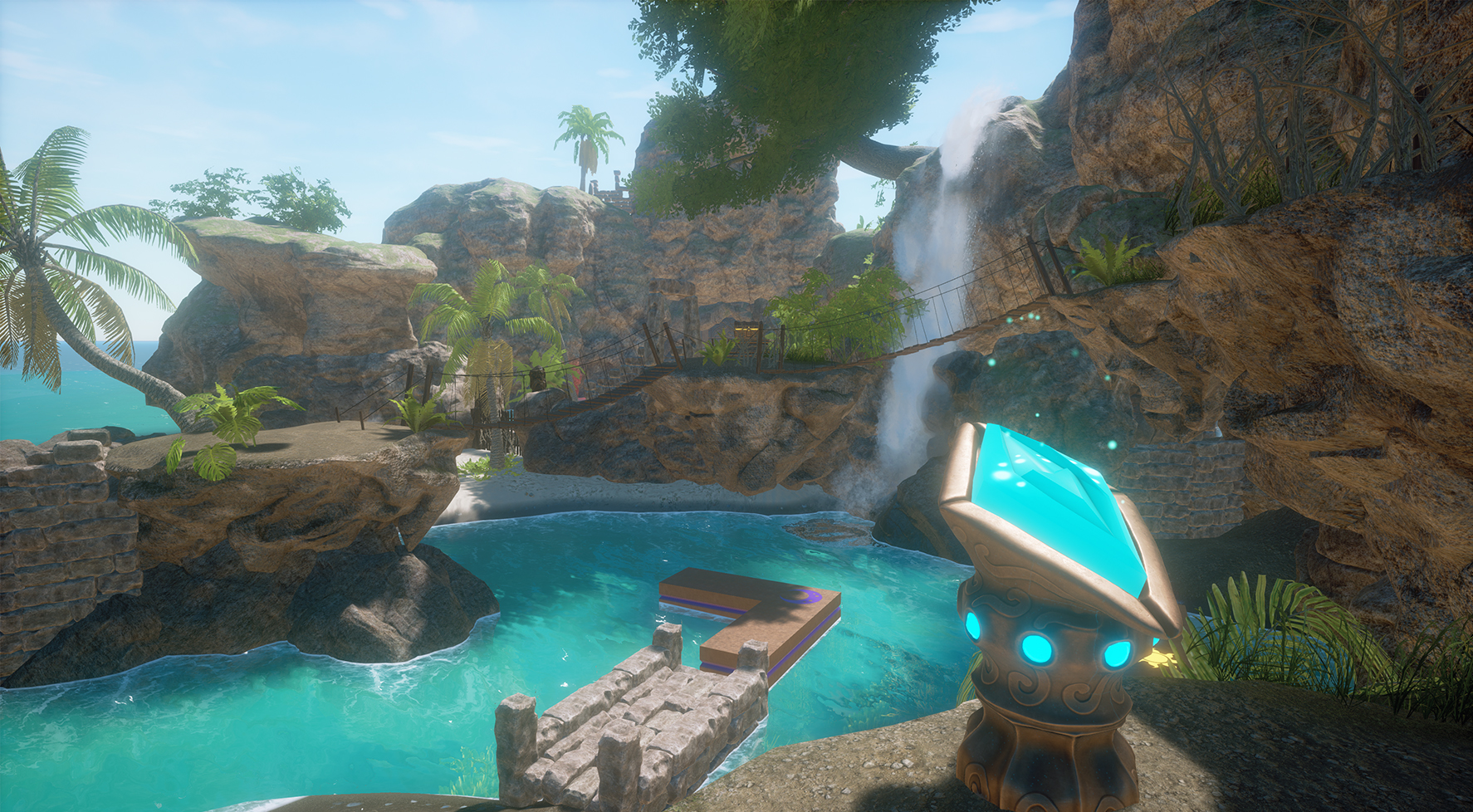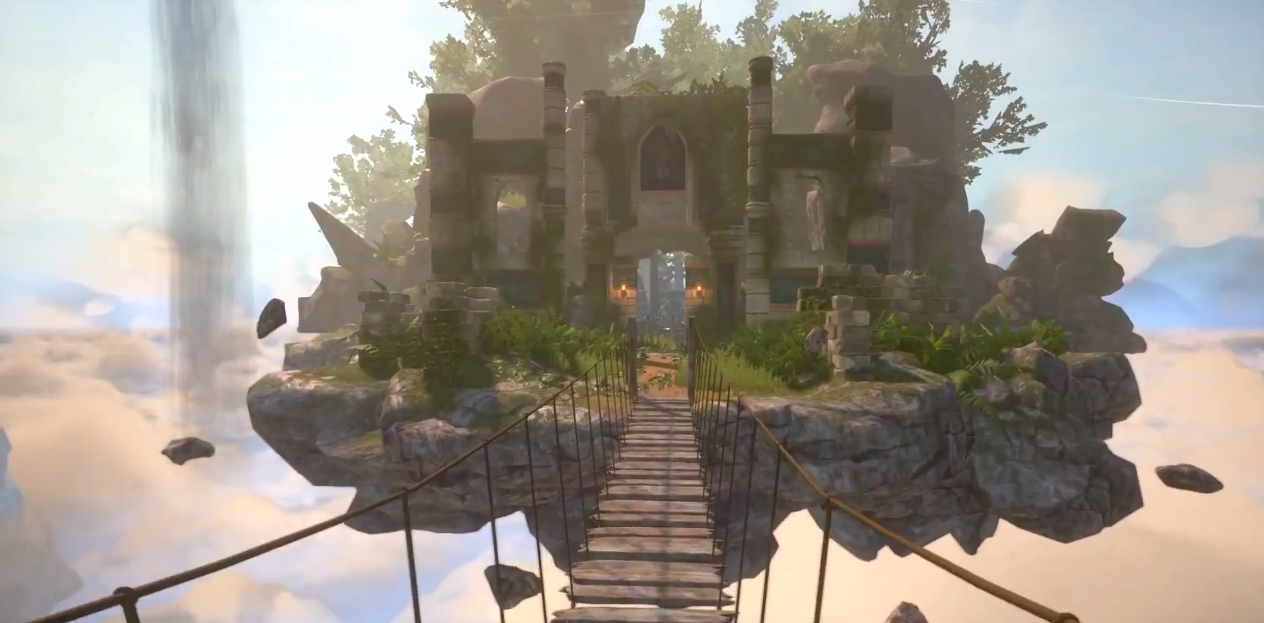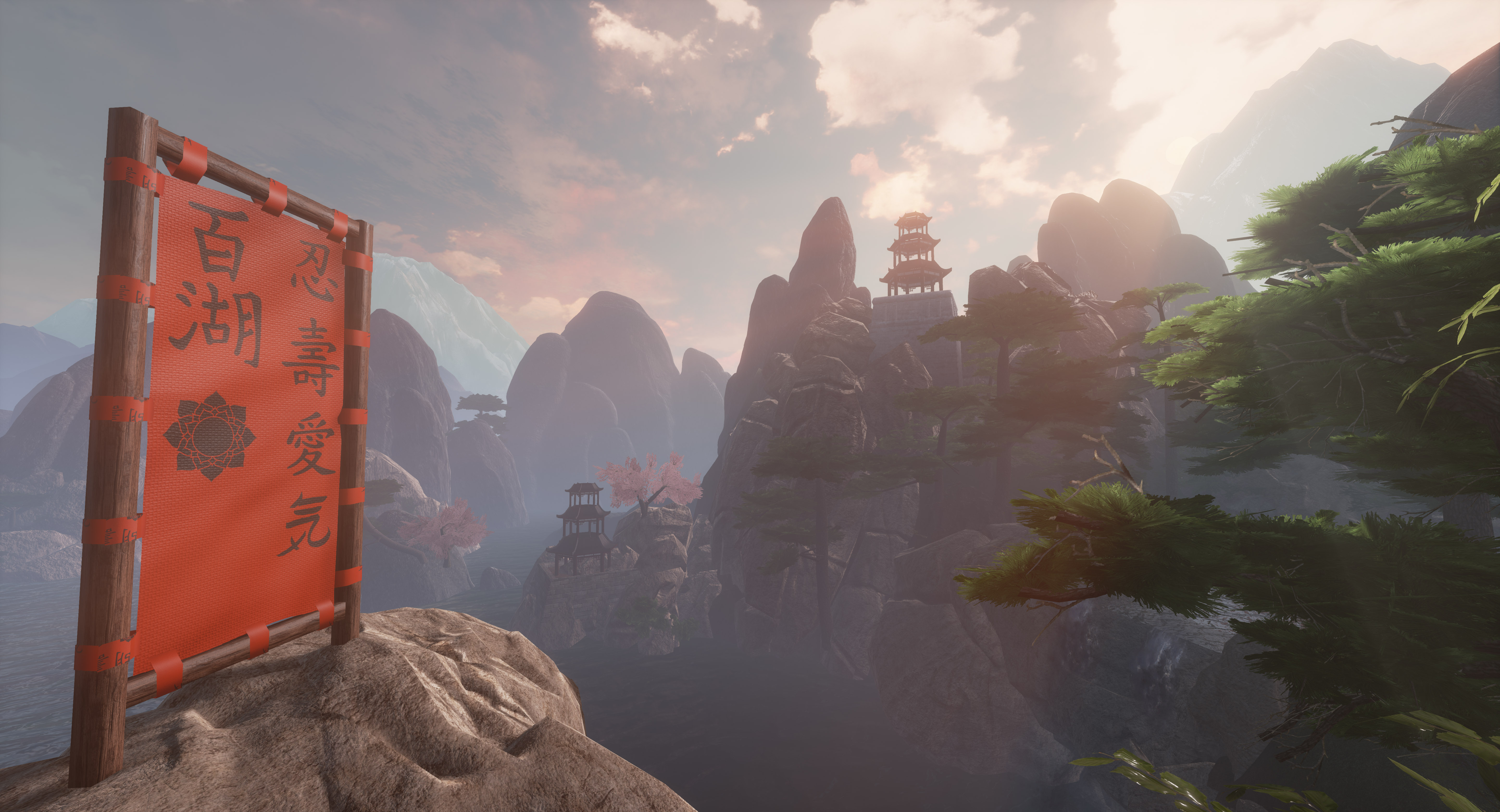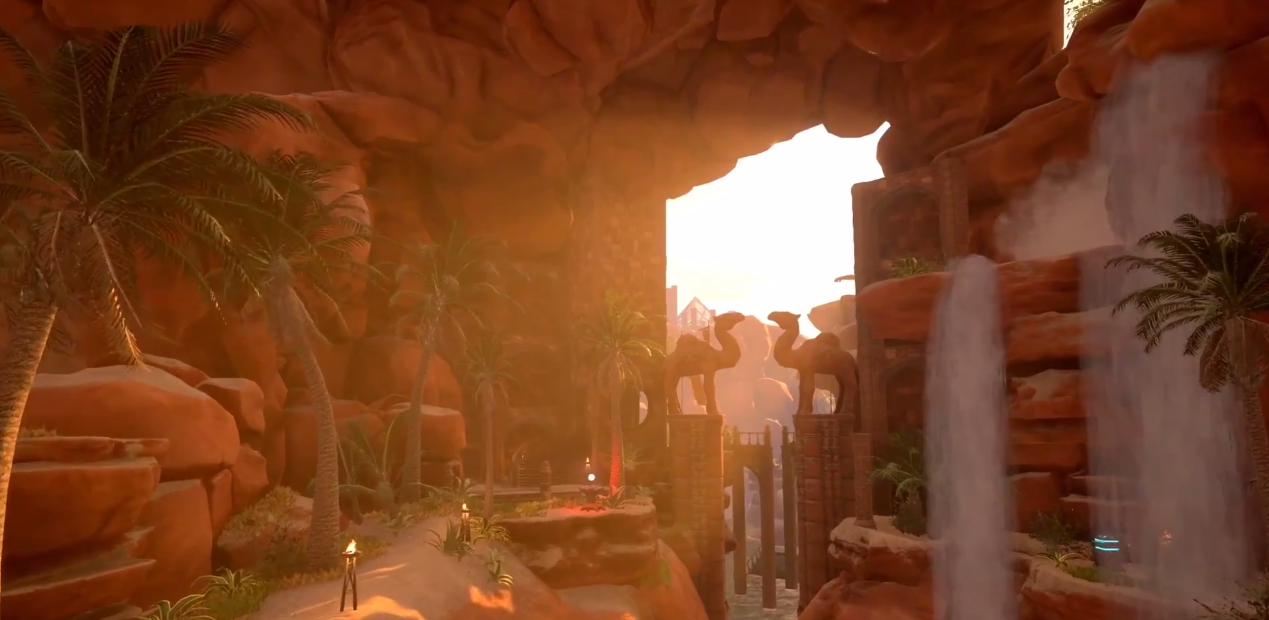Atmospheric, puzzle-focused adventure games like Myst and Riven aren’t the massive successes today that they were in the ‘90s, but the formula has aged gracefully. Discovering the secrets of mysterious worlds is still exciting in 2019, and in Xing: The Land Beyond, developer White Lotus Interactive has crafted an experience that’s engaging both in and out of VR.
It isn’t all good news, however, as beneath the retro façade and clever puzzles are a few major bugs that threaten to tank the whole experience.
As is customary in these sorts of adventure games, the protagonist is Xing: The Land Beyond is you, or rather a version of you that happens to already be dead. Held in a purgatory halfway between the living world and whatever comes next, you’re tasked with traveling through four portals in order to free trapped spirits. Each is tormented in a different way, and their stories are uncovered through a series of narrated scrolls you find as you complete puzzles. One young girl recalls the abuse she suffered in her home, as well as the confusion she felt after the death of her mother. Other stories deal with depression and lost love, and the way they’re eventually tied together just prior to the game’s conclusion helps to add more context to the seemingly scattershot tale.
Each of Xing’s worlds has a different theme directly related to gameplay, and because they must be completed in a set order, the puzzles from one area build on those in the last and increase the difficulty at a steady pace. The objective is essentially the same in all of them – collect four quarters of a circle and reach the conclusion – but White Lotus has crafted some of the best environmental puzzles I’ve seen in years. Certain areas can only be accessed after stepping on a pad to raise the water left, revealing bridges, while others must be frozen in order to be crossed. Almost nothing is included for aesthetics alone, and it’s likely Xing is the only game to ever use a flaming durian fruit as a key component to completing a puzzle.
Alongside the mandatory puzzles, Xing also includes collectible runes that can be used to unlock additional story content back at the hub area. More often than not, these are only accessible if you solve a very difficult puzzle interwoven into the mandatory content, but this has the advantage of making the latter puzzles easier than they sometimes appear. Four blocks might be available to move into certain locations, but you will occasionally only have to move two of them into position to actually progress.
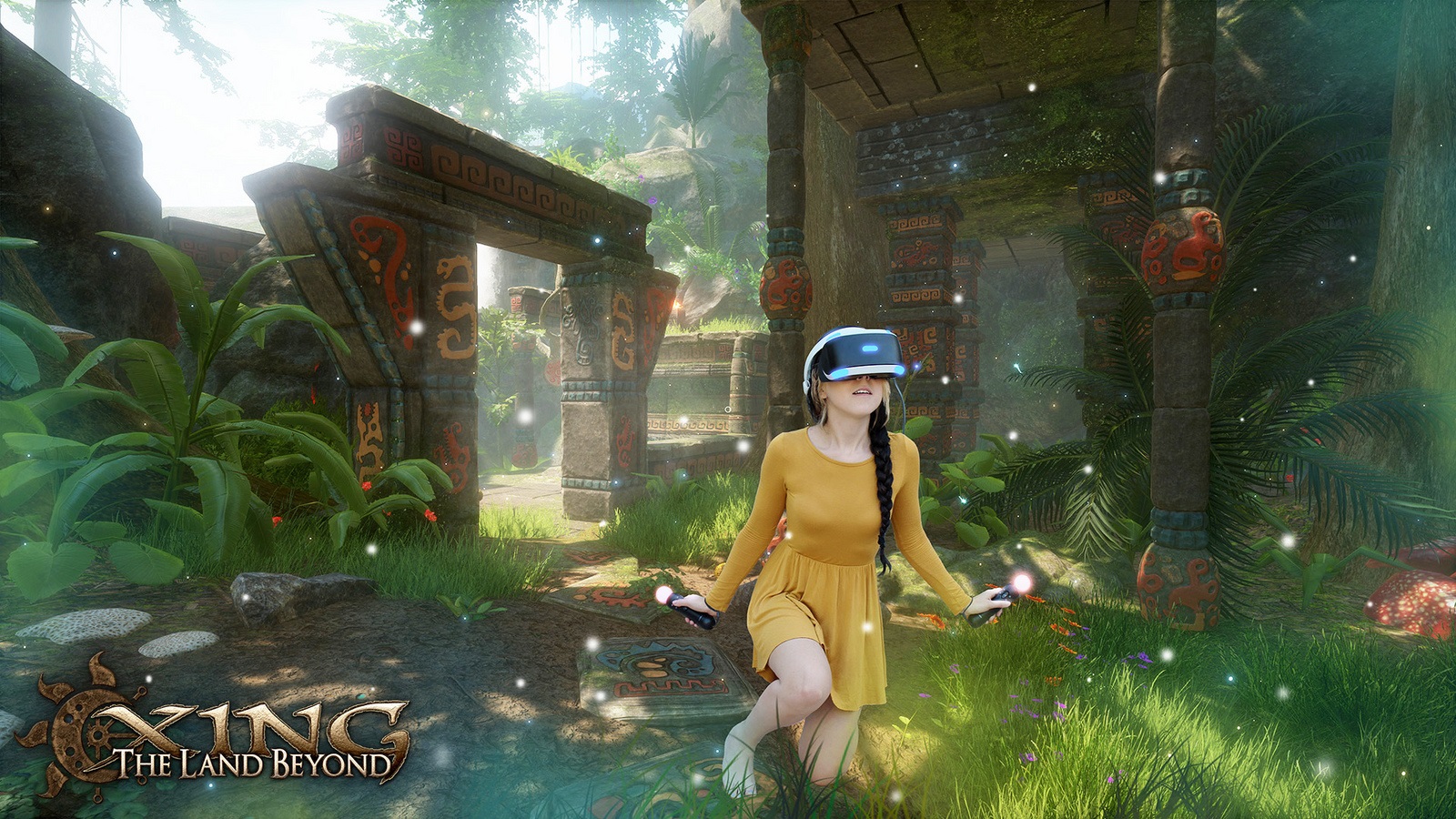
Xing is fully playable as a traditional flat non-VR game, but it loses almost nothing in the transition to PlayStation VR. The world retains its tranquil beauty and certain environmental effects are actually better realized in the more immersive mode, and when played with a DualShock 4 controller, the combination of head and analog stick movement makes solving puzzles a breeze. Options are available to turn off click-rotation in favor of smooth movement, and despite the game’s warnings about nausea, this is the way you should be playing the game in VR.
Things aren’t so smooth with the PlayStation Move controllers. One is used for moving yourself around the games’ worlds while the other controls your rotation, but the resulting jerkiness and imprecise navigation made it more frustrating than DualShock 4 almost immediately. The controllers do allow you to have more natural throwing motions when solving certain puzzles that use balls or small objects, but this is traded in for the alternative DualShock 4 mode that shows you precisely where your throw is going to land.
By the time you get to the last puzzles in Xing, it can be brutally difficult to even figure out how to start completing them, with so many different mechanics and components to keep track of. This wouldn’t be an issue if it weren’t for a bizarre saving bug that can wipe hours of progress and force you to replay them again in their entirety. After completing the third world, I closed the game and turned off the PlayStation 4, only to find that the world needed to be done again.
This was despite the fact that the game’s progress menu showed I had done so already, and after replaying the third world and completing the fourth, I turned off the system again. Once again, the most recent world I completed had to be played again, and when entering the final stage, a glitch left me floating in outer space. Luckily, closing and restarting the game this time placed me where I was supposed to be, or the console would likely be in pieces from my frustration. The issue appears to have also been present on the earlier PC version of the game, which released over a year ago.
Were the aforementioned bugs ironed out, Xing: The Land Beyond would be an easy recommendation for adventure game fans and anyone looking for a title that succeeds across both traditional displays and VR. If you’re willing to complete the entire game in one sitting to avoid bugs, you won’t have much to worry about, but everyone else should likely wait until White Lotus has time to iron out its issues.
Xing: The Land Beyond is out now on PSVR for $19.99 and is also available on Steam with support for Rift and Vive for $19.99 or Oculus Home for the same price. Check out these official review guidelines to find out more about our process.
Editor’s Note: Since this review was published a game update was pushed out to add smooth turning and reportedly to fix the save bug.

